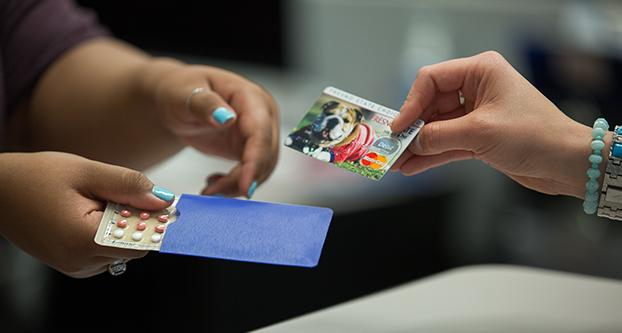A dollar a day keeps the baby away.
Under a new law allowing pharmacies to provide over-the-counter birth control, Fresno State’s Health Center will be expecting some changes that female students will know about.
In 2013, Senate Bill 493 was passed in California making oral contraceptive birth control available over the counter at a pharmacy, and after legislative discussion this week, the changes will be going into effect.
The bill states: “This bill would authorize a pharmacist to administer drugs and biological products that have been ordered by a prescriber,” removing the need for a doctor or gynecologist as a middle man when seeking the oral contraception.
The new law was designed to make the accessibility of birth control more convenient for women.
“There are changes that are taking place in California that are allowing pharmacies to directly dispense birth control,” said Fresno State University Health Center’s Dr. Daniel Little. “With that, a woman can go directly to a pharmacy. They can fill out a questionnaire, and meet with the pharmacist. If everything is in place, then they can directly dispense the birth control to the woman.”
“All health insurances are required to provide birth control methods at no out of pocket costs to the female. There is a program in California called Family Pact that’s mostly funded with federal dollars, and that program provides no-cost birth control as well as testing and treatment for sexually transmitted infections,” Little said.
Whether the pharmacies are going to accept the insurance or programs women use in order to waive the costs of birth control is not clear. However, it is not likely as programs such as Family Pact promote women going to see a doctor when receiving birth control to ensure they are taking the proper precautions, Little said.
“They want women to see a healthcare provider so that they get other education, testing and pap smears. So how these insurance programs are going to work with these new pharmacy regulations in terms of paying for those prescriptions is still up in the air,” Little said.
The talk of change and rises in costs for women has caused concern throughout campus as many students take advantage of the Health Center as their supplier for the contraception.
“Almost every girl I know is on birth control through the school,” said Fresno State senior Tyler Bartlam, who has been on the pill for over a year now through the health center.
The many benefits of birth control range beyond contraception.
“You take birth control for not only preventing pregnancy — you’re regulating hormones, preventing acne [and] period cramps. It’s not just to sleep around,” Bartlam said.
Each pack of birth control averages from $20 to $30 a pack, per month, depending on the brand. If a student uses the Health Center’s pharmacy to get her birth control, that can add up to $360 to her yearly expenses.
Insurance companies and plans that provide cost-free birth control are not likely to change because that is protected under the Affordable Care Act. Although if you are looking into using the new pharmaceutical access, you may want to rethink that decision as it may not be beneficial.
“If this is out there and women can get it from a pharmacy, but they still have to pay for the birth control out of their pocket verse going to a doctor and it’s covered by insurance, then that’s not going to improve access a whole lot,” Little said. “Because a lot of women will say, ‘No, I still want to go to the doctor and get it paid for because I want the insurance to pay for it.’”




